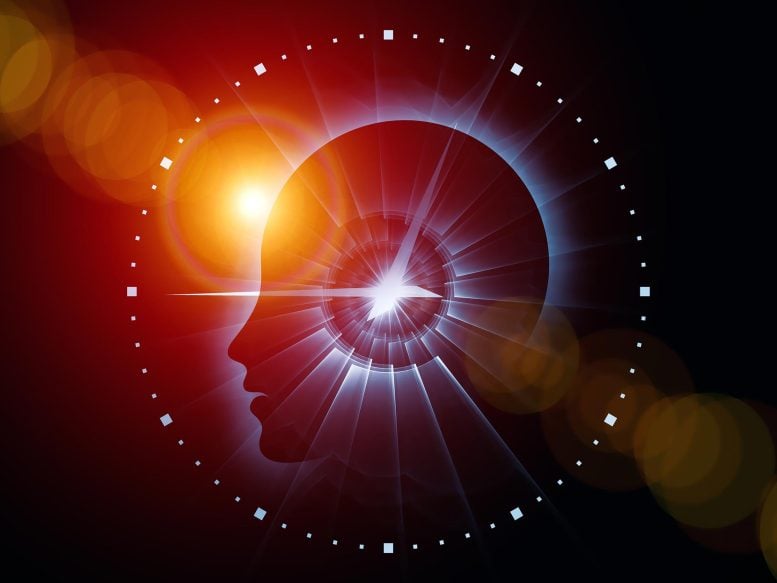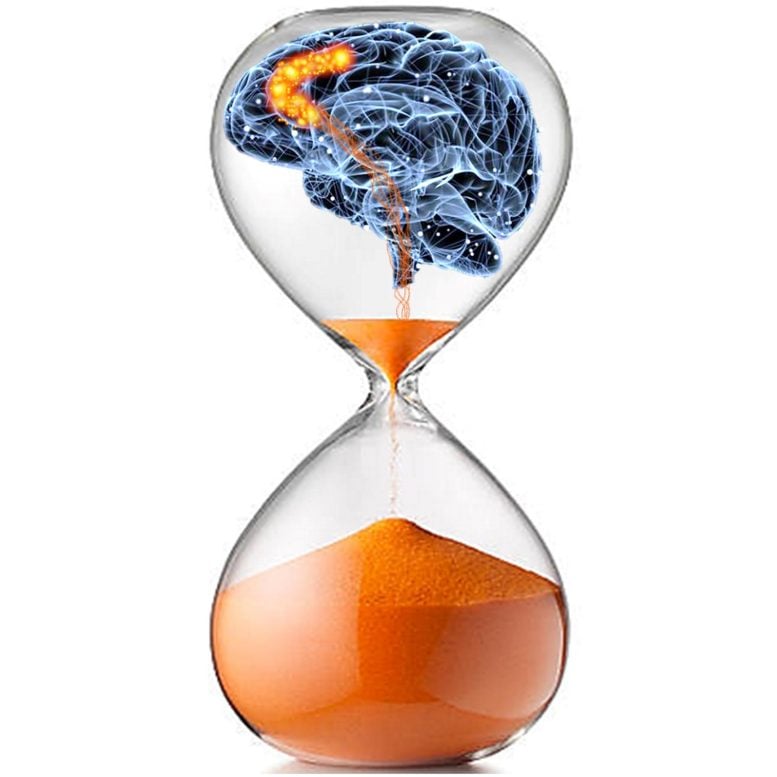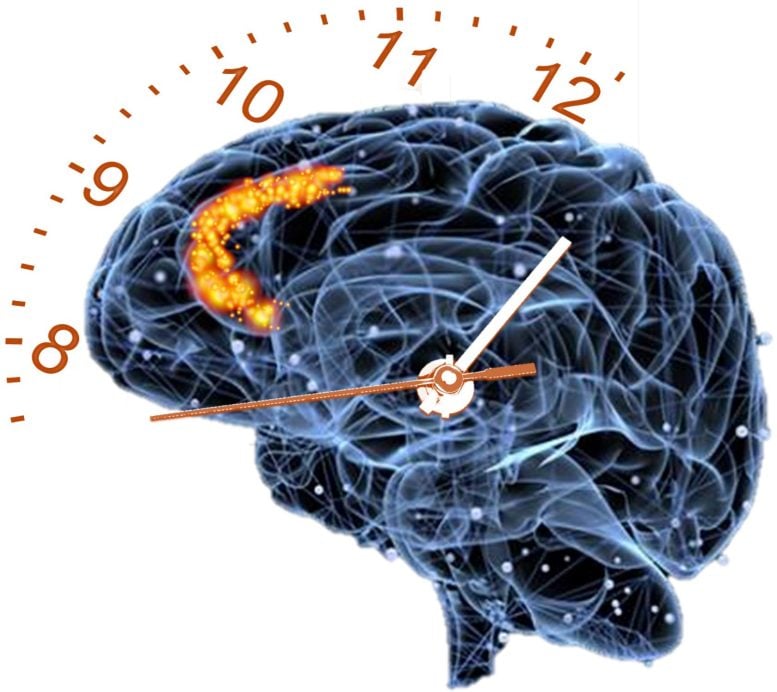
[ad_1]

A recent UNLV study reveals that our perception of time is influenced not by an internal clock, but by the number and nature of experiences we undergo. Researchers found that the anterior cingulate cortex plays a crucial role in this process, by monitoring activities and tracking experiences, which suggests a model where our brain behaves more like a counter of events than a chronological timer.
Our brain measures time by counting experiences, not by following a strict chronological order.
A new study by a team of UNLV researchers suggests that there’s a lot of truth to the trope “time flies when you’re having fun.”
In their study, recently published in the journal 
A UNLV-led neuroscience study found that we perceive the passage of time based on the number of experiences we have — not some kind of internal clock. Credit: Talha K. Soluoku/UNLV
Exploring Neuronal Activity and Time Perception
The findings are based on an analysis of activity in the anterior cingulate cortex (ACC), a portion of the brain important for monitoring activity and tracking experiences. To do this, rodents were tasked with using their noses to respond to a prompt 200 times.
Scientists already knew that brain patterns are similar, but slightly different, each time you do a repetitive motion, so they set out to answer: Is it possible to detect whether these slight differences in brain pattern changes correspond with doing the first versus 200th motion in series? And does the amount of time it takes to complete a series of motions impact brain wave activity?
By comparing pattern changes throughout the course of the task, researchers observed that there are indeed detectable changes in brain activity that occur as one moves from the beginning to middle to end of carrying out a task. And regardless of how slowly or quickly the animals moved, the brain patterns followed the same path. The patterns were consistent when researchers applied a 
A UNLV research team explored how the brain tells time. Credit: Talha K. Soluoku/UNLV
Insights on How the Brain Measures Time
Hyman drove home the crux of the findings by sharing an anecdote of two factory workers tasked with making 100 widgets during their shift, with one worker completing the task in 30 minutes and the other in 90 minutes.
“The length of time it took to complete the task didn’t impact the brain patterns. The brain is not a clock; it acts like a counter,” Hyman explained. “Our brains register a vibe, a feeling about time. …And what that means for our workers making widgets is that you can tell the difference between making widget No. 85 and widget No. 60, but not necessarily between No. 85 and No. 88.”
But exactly “how” does the brain count? Researchers discovered that as the brain progresses through a task involving a series of motions, various small groups of firing cells begin to collaborate — essentially passing off the task to a different group of neurons every few repetitions, similar to runners passing the baton in a relay race.
“So, the cells are working together and over time randomly align to get the job done: one cell will take a few tasks and then another takes a few tasks,” Hyman said. “The cells are tracking motions and, thus, chunks of activities and time over the course of the task.”
Implications for Understanding Human Behavior and Emotion
The study’s findings about our brains’ perception of time also apply to activities-based actions other than physical motions.
“This is the part of the brain we use for tracking something like a conversation through dinner,” Hyman said. “Think of the flow of conversation and you can recall things earlier and later in the dinner. But to pick apart one sentence from the next in your memory, it’s impossible. But you know you talked about one topic at the start, another topic during dessert, and another at the end.”
By observing the rodents who worked quickly, scientists also concluded that keeping up a good pace helps influence time perception: “The more we do, the faster time moves. They say that time flies when you’re having fun. As opposed to having fun, maybe it should be ‘time flies when you’re doing a lot’.”
While there’s already a wealth of information on brain processes over very short time scales of less than a second, Hyman said that the UNLV study is groundbreaking in its examination of brain patterns and perception of time over a span of just a few minutes to hours – “which is how we live much of our life: one hour at a time.”
“This is among the first studies looking at behavioral time scales in this particular part of the brain called the ACC, which we know is so important for our behavior and our emotions,” Hyman said.
The ACC is implicated in most psychiatric and neurodegenerative disorders and is a concentration area for mood disorders, DOI: 10.1016/j.cub.2024.05.045




